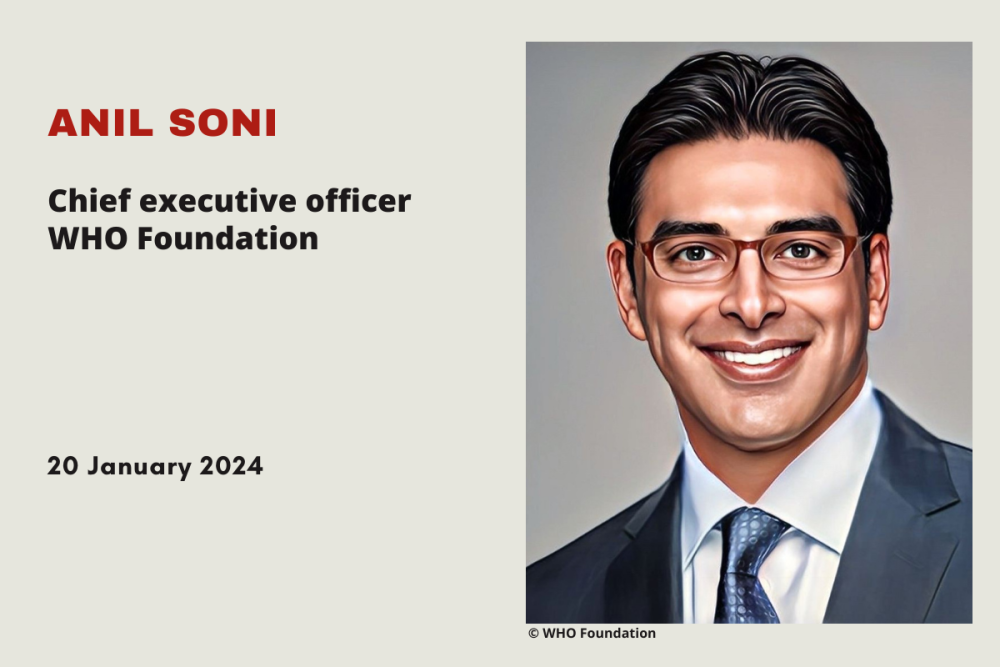The interview | Anil Soni
 |
How would you present your organization in a few words? What entails your position? What is your goal? |
The WHO Foundation is a Swiss foundation affiliated with the World Health Organization (WHO) that mobilizes more resources from the private sector to achieve WHO’s mission of Health for All. Our job is to reimagine and reshape how people and companies contribute to global health by catalyzing high-impact solutions and by connecting change-makers.
 |
Among the concentration of actors in Geneva (IOs, NGOs, permanent missions, academia, and the private sector), who do you work with and how? |
The WHO Foundation believes that by coming together, organizations working towards health equity can be more effective. We are facing a world with ever greater challenges and demands on resources. This creates the risk of competition, when, in fact, collaboration allows organizations to be more efficient and effective at raising resources. The WHO, for example, is one piece of the puzzle with national governments and other international and nonprofit organizations when it comes to eliminating a disease. We help define those collective outcomes and complementary roles to better mobilize resources and enable impact.
 |
What are the strengths and weaknesses of Geneva with regards to the development of your activity? |
Geneva is unique in the world for its concentration of global health leaders and organizations, all working towards a common vision of health access as a human right. Another strength is that it is a home to the United Nations, which brings together the nations of the world. A challenge in Geneva is the distance from the communities most affected by injustice and poverty; and the very same communities who are on the front lines of the solutions that international organizations must support. Local leaders around the planet must not be distant beneficiaries; but close partners. Those of us who work in Geneva must make every effort to listen to their voices and support their efforts.
 |
|
Global governance today remains a post-colonial architecture shaped in the wake of the world wars of the last century. It concentrates power in the hands of a limited number of countries and in the participation of governments, not civil society. Though this is changing, with some peer organizations in Geneva making important strides in that direction, the United Nations’ own Secretary-General has made clear that reform is urgent. Such reform should distribute power to more countries and communities.
 |
|
I am the father of two young children, and what keeps me up at night is the urgency and magnitude of the challenges we face to make a better world for them. Climate change is changing the face of the planet, and is a product of how people and companies have acted in my lifetime. We owe it to our children – and to the communities who have contributed the least to carbon emissions but are being most affected – to correct for our own actions. That is what equity means to me: repair. Inequity is a product of injustice. And all of us can be change agents on behalf of justice. That’s the question I always want to be asked and that I ask for others: how do we make this mission more personal, so that we are acting not out of charity to help others, but from a deep understanding of interdependence and common humanity.
